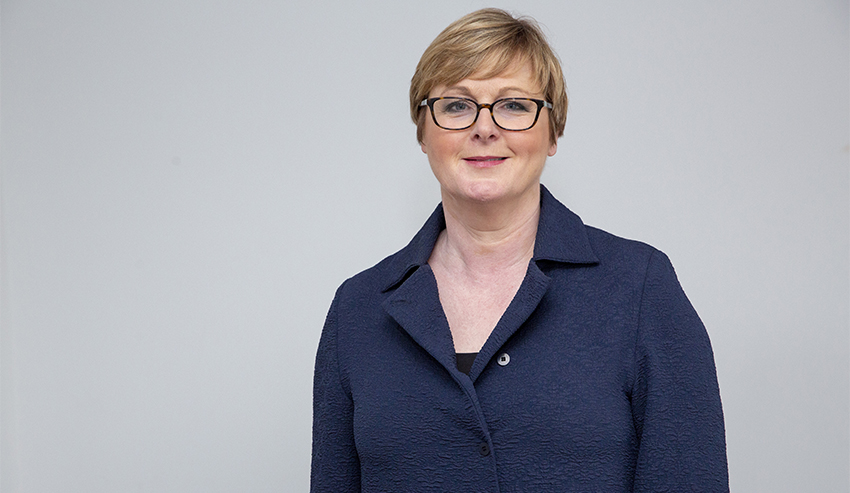When speaking with the Defence Connect Podcast earlier in the year, senator for WA Linda Reynolds echoed Milskil’s calls for greater industry collaboration as a means of improving procurement outcomes on Australia’s Defence projects.
To continue reading the rest of this article, please log in.
Create free account to get unlimited news articles and more!
As Australia's defence industry gears up to take part in the government's $200 billion investment in capability and supporting sovereign industry development, SMEs in particular will play an important role in assisting the multinational primes to deliver the capability Defence requires.
During her conversation with the Defence Connect Podcast, Senator Reynolds, a former Brigadier, focused heavily on the need for both government and industry to get it right when it comes to the nation's defence procurement projects.
"I'd make the observation that I think from Federation, the Parliament hasn't been engaged enough in terms of the defence strategy for Australia in terms of its long-term implementation and oversight," she said.
The senator was quick to identify that both sides of politics had been largely supportive of operational matters, procurement, particularly around some of the larger, more sensitive projects – read the much maligned Collins Class submarines, $80 billion future submarine and $35 billion future frigate programs – which often become partisan footballs in the halls of Canberra power.
In her home state of Western Australia, Senator Reynolds has a great number of success stories that are serving to prove that Australia can build a viable, competitive defence industry.
The senator said, "We've got a very strong Air Force, Army, and Navy presence in Western Australia that is growing. There's billions of dollars worth of capital investment going into facilities there. We've got nearly 6,000 personnel based there and their families. We've got pretty much half the Navy based over there. We've got new space capabilities going in. We've got everything but we don't promote it very well."
Henderson-based Austal is one such shining example of the state's capabilities and it's ability to support domestic and global defence contracts. Despite little to no direct Commonwealth support provided to the Adelaide facilities, Austal has been successful in completing projects for a variety of clients, including the Australian government in the Armidale Class patrol boats, the new Guardian Class Pacific patrol boats and Oman's High Speed Support Vessel 72.
Abroad, Austal's position as a premier, high-capability, aluminium warship designer and builder, has seen it successfully establish itself as a major supplier to the US Navy, with it's Independence Class Littoral Combat Ships (LCS) and the Expeditionary Fast Transport ships. As Senator Reynolds explains, despite little public knowledge of WA's ship design and building capacity, the state is producing world-class winners.
"Before this all started, when the White Paper came out, West Australia wasn't even mentioned as a shipbuilding hub, so we had a lot of work to do to get ministers, prime ministers, my colleagues, actually to go down to Henderson and stand underneath the ships that were being built in 18 months, some of them naval vessels for other countries," Senator Reynolds said.
WA's manufacturing industry has evolved and grown at 5 per cent per year, according to Senator Reynolds, with manufacturing and large-scale fabrication projects for the state's oil and gas sector and mining sector highlighting the diversity of the economy and transferable nature of the skills being developed.
One thing that becomes abundantly clear based on the senator's comments is the growing need for a greater understanding of competitive advantage among the states and territories when it comes to competing and collaborating for lucrative defence projects. The senator highlights that WA and SA, for example, enjoy areas of competitive advantage in the realm of shipbuilding.
"Because I think there's a lot of opportunity for West Australia and South Australia, for example, to work together and look at our competitive advantages and there is enough work there for everyone. Really, the states – I love a bit of healthy competition – but I think that's where we need to go from unhealthy competition between the states to a long-term working bipartisan arrangement between states as well."
This reinforces the calls of Milskil chief executive and managing director John Lonergan when he speaks about the rapidly developing aerospace hub at RAAF Williamtown, which has evolved to support the nation's future air combat capability in the F-35. In a similar vein, the announcement of Rheinmetall as the winner of LAND 400 Phase 2 with its Boxer CRV and Military Vehicle Centre of Excellence establishes Queensland as a specialist vehicle manufacturer alongside Victoria, with the Hawkei facility in Bendigo.
Clearly, states and territories enjoy different advantages when it comes to their respective skills, manufacturing and research and development bases. It would be in the best interests of all involved to push for greater bipartisanship among the various jurisdictions and their policies in order to improve industry development and procurement outcomes for Australia and it's defence capability.
Stephen Kuper
Steve has an extensive career across government, defence industry and advocacy, having previously worked for cabinet ministers at both Federal and State levels.

 Login
Login








